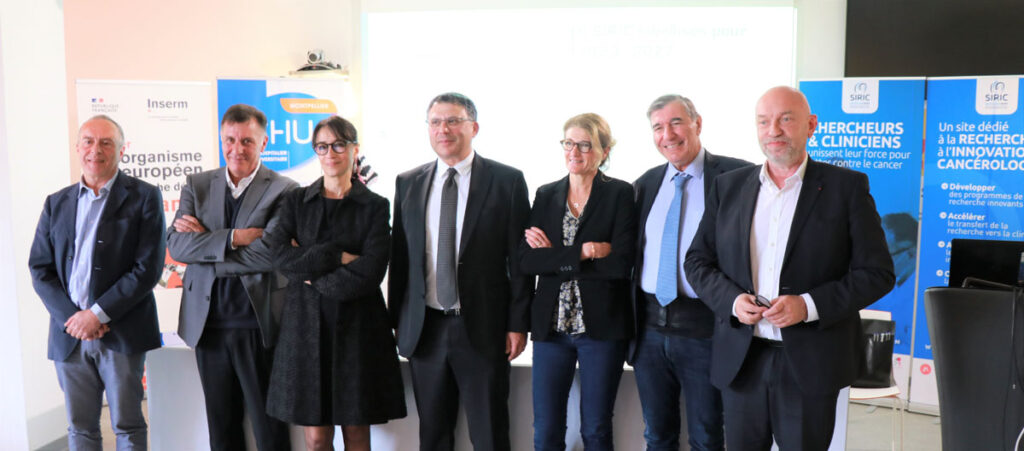SIRIC: Montpellier's influence in cancer research
With the renewal of the SIRIC label – " Research Cancer Research Site" awarded by the National Cancer Institute to the consortium comprising the Montpellier Cancer Institute (ICM), Inserm, CNRS, Paul-Valéry University – Montpellier 3, and the University of Montpellier, a third phase is beginning for this project of excellence in cancer research in Montpellier. The project was presented on Wednesday, April 12, at a press conference.

Montpellier is indeed a hub for research and innovation, with a long history in the field of biology and health. Within this highly stimulating ecosystem, SIRIC Montpellier Cancer has spent the last decade building a research center that integrates medical, scientific, and societal research in oncology.
Renewal of the SIRIC label
Building on the success of their second certification (2017), the teams at SIRIC Montpellier Cancer have had their prestigious SIRIC certification renewed for a further five years following a competitive evaluation conducted by an international jury.
The €6 million in funding over five years allocated by INCa, Inserm, and the Directorate General for Healthcare Provision (DGOS) will enable the Montpellier SIRIC to strengthen its activities around a new, ambitious, and unifying project that will bring together 20 research teams from eight institutes affiliated with Inserm, the CNRS, Paul-Valéry University, and Montpellier University, and 25 clinical teams from two partner healthcare institutions.
3 programs to transform clinical practices
The ambition of SIRIC Montpellier Cancer is now to develop integrated research programs (PRI) around three central themes, for which Montpellier has unique medical and scientific assets, enabling the development of excellent research likely to transform clinical practices in the near future:
- The PRI " PRIORITY" will develop world-class research aimed at optimizing internal and external radiotherapy treatments by combining a multimodal approach integrating tumor biology, radiobiology, dosimetry, and next-generation imaging driven by Artificial Intelligence.
- The PANACEA PRI will draw on a unique network of expertise in psychosocial and behavioral sciences, public health, supportive care, and cancer biology to develop interventional research aimed at reducing cancer incidence and improving outcomes for cancer patients.
- The " ENERGY" PRI will establish a consortium of world-renowned medical and scientific leaders in the fields of metabolism, epigenetics, and data modeling to develop innovative therapeutic strategies based on a better understanding of metabolic alterations in cancer cells.
Through these programs, Montpellier's SIRIC aims to reaffirm its role as a catalyst for translational research and interdisciplinary collaborations between physicians, biologists, social scientists, and scientists from various fields who are contributing to new ways of defeating cancer. The transfer of scientific advances made by SIRIC will be supported by an efficient local innovation ecosystem and a network of strategic partnerships with industry. Specific actions will enable the dissemination of new knowledge for the benefit of professionals, patients, and the general public.
Finally, SIRIC will take a further step toward promoting health democracy by appointing a pair of patient coordinators whose role will be to develop policies promoting health democracy in research.